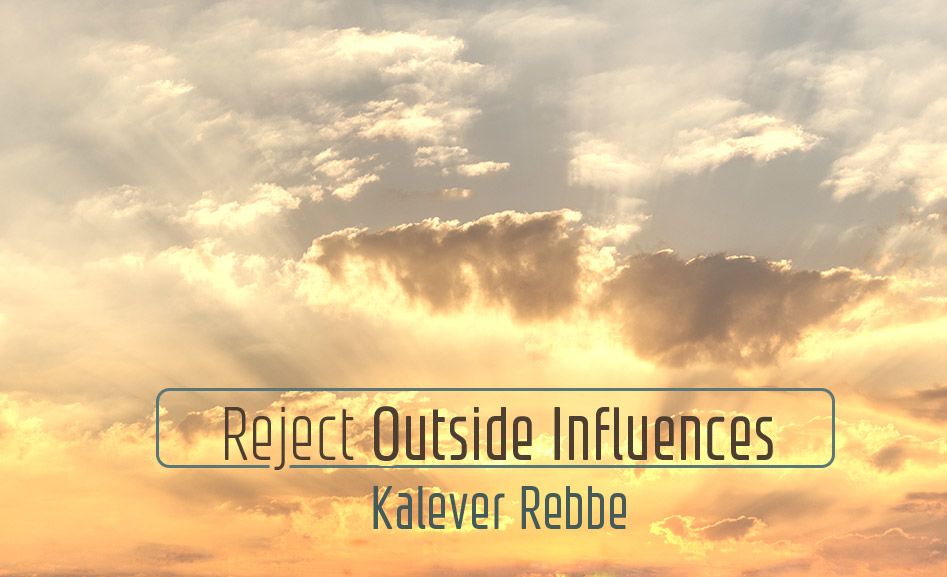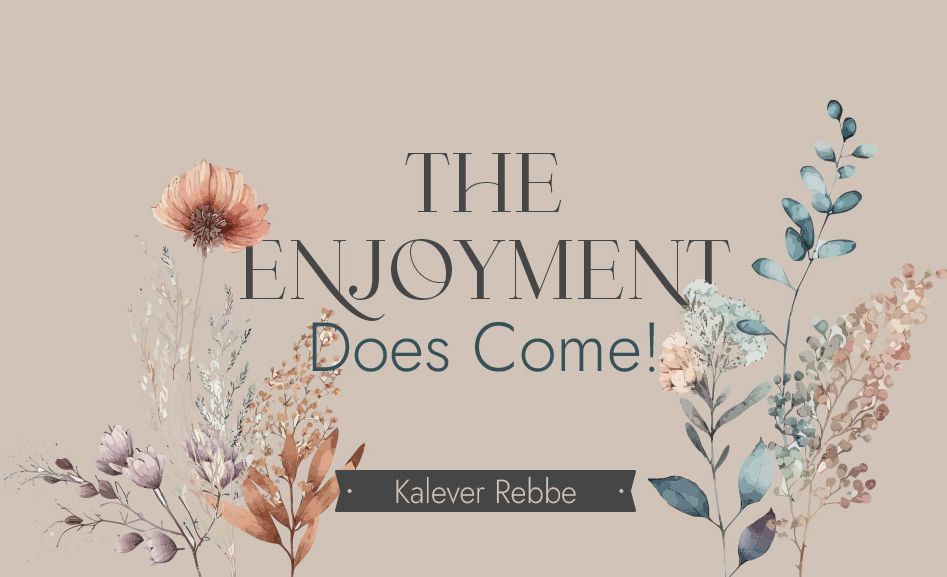
Try Not to Judge
Negative emotional states such as anger and depression will cause you to be judgmental of others since they allow for a very limited and narrow perspective...

Everyone knows that judging is wrong because no one likes it when they are the ones being judged.
Everything we see, hear or feel has a purpose and a positive intention. What is the positive intention of judging and when is it good to judge?
According to the Kabala, the world was created through channels. Each of these channels represents a certain mental or emotive attribute.
There are channels that flow from the right. These are the channels that are representative of the emotive attribute of Chessed/loving kindness and there are the channels that flow from the left. These are the channels that are representative of the emotive attribute of Din/judgment, severity or limitation.
If a person was influenced solely by loving kindness he would run around helping everyone until he dropped of exhaustion because the nature of loving kindness is unconditional giving. His giving would be  unlimited to the point of self-destruction. If this person was a parent he would give his children endlessly until they grew up to be completely self-centered and egotistical.
unlimited to the point of self-destruction. If this person was a parent he would give his children endlessly until they grew up to be completely self-centered and egotistical.
If someone were to treat themselves only with loving kindness then they would never find fault in themselves or their behavior. Just like a person who is in love overlooks any fault in the object of his love. He would therefore never change any of his negative behaviors and may not even realize that he had any.
As we have seen judgment is necessary and should be used for self-development and relating to others. If however, a person were to relate to himself only with the attribute of judgment he would be overly critical of himself and would never get anything done, this behavior may even bring him to deep depression or even suicide, G”f. Therefore, this judgmental observation of self must be tempered with loving kindness. This tempering creates a new attribute which the Kabala/Chassidut calls Tifferet/Beauty. The attribute of beauty includes; harmony, truth and compassion.
Tifferetcan help us find the truth of a certain behavior and realize that it is a result of a specific intention. All intention is originally good, it is the resulting action that can be faulty. When we realize that the intention is good we can redirect it to create another more appropriate behavior in ourselves and acknowledge that another’s behavior also originates from a good intention.
Here are some examples:
* Fact – someone yells at me
* Judgment – I was offended, mistreated, disrespected…
* Loving kindness – He may be having a bad day, how can I learn from this experience to be a better person, his behavior should not influence my mood
* Fact – I didn’t get the job
* Judgment – I am a failure, loser, untalented, unwanted…
* Loving kindness – A better job is waiting, they must be looking for someone with different qualifications, how I can improve my skills…
* Fact – she is short tempered
* Judgment – what a witch, doesn’t care about others, thinks she’s better than me
* Loving kindness – Maybe her health is not so great, how can I help her, perhaps her life has been difficult, I pity her inability to enjoy life…
Our goal here is to realize when we are looking at someone with a critical eye, and change our judgmental habit.
Here are some general rules concerning judgment.
Keep from lumping people into groups.
Statements that are not based on fact are usually based on beliefs. Beliefs are faulty in that they are very limited and can cause you to be judgmental.
Negative emotional states such as anger and depression will cause you to be judgmental of others since they allow for a very limited and narrow perspective. You will find the opposite to be true regarding positive emotional states such as joy and contentment. Positive states automatically place a person into a wider, open minded perspective.
Practical Application:
* When someone judges you, make sure you observe the depth in which it affects you. By internalizing the experience instead of reacting defensively, you create personal awareness which allows you to realize when you are acting in the same manner.
* Ask yourself; what does it cause me to think about?
* What does it cause me to feel?
* How does it cause me to react?
* Make an effort to find positive qualities in people. This will help you and them.
Train yourself to be happy and joyful. If you find it difficult then force yourself to smile. Sometimes it is easier to work from the outside-in as opposed to the inside-out. A smile broadens the facial features allowing for more light to enter in. Light brings healing and joy.
Make an effort to greet people first, this opens a lot of good feelings in both parties.
Get some exercise. It helps get the natural “feel good” chemicals flowing in the body.
The training process takes time but keep to it and you will see the rewards.
According to the Kabala ones thoughts and words can influence himself and others so let them be positive.
Blessings and Success,
Gavriel
* * *
About Shmuel Gavriel Tornek – Gavriel is an ordained rabbi, NLP Master Practitioner and Life Coach, trained in Jewish meditation and graduate of Reidman College of Holistic Health. With years of experience presenting lectures, workshops, private classes and consultations on-line and off. He specializes in; excessive thoughts management i.e. anger, worry, stress, depression, phobias, etc… life change and positive magnetic thinking i.e. law of attraction as presented in Judaism.
Gavriel was born in the United States. He immigrated in 1994 and lives in Israel with his wife and children. He is fluent in both English and Hebrew. Culturally diverse, Gavriel enjoys working with people from all backgrounds, devoted to helping them overcome personal issues and finding and maintaining a fulfilling and satisfying lifestyle.
For more on life change by Gavriel visit his website Thinktov @ www.thinktov.com









5/10/2016
I would add to your nice article that you are suggesting examples of how to build empathy. Only with empathy can we also embrace out nonJewish neighbors too. Being nonjudgmental is not exclusively among Jews. G-d created a diverse world with a purpose. We cannot hide our thoughts and intentions from G-d.
5/10/2016
Nice article
I would add to your nice article that you are suggesting examples of how to build empathy. Only with empathy can we also embrace out nonJewish neighbors too. Being nonjudgmental is not exclusively among Jews. G-d created a diverse world with a purpose. We cannot hide our thoughts and intentions from G-d.
12/22/2013
Fantastic article, It gives credit to the range of emotions and I found the examples to be very applicable. Thank you for the article!